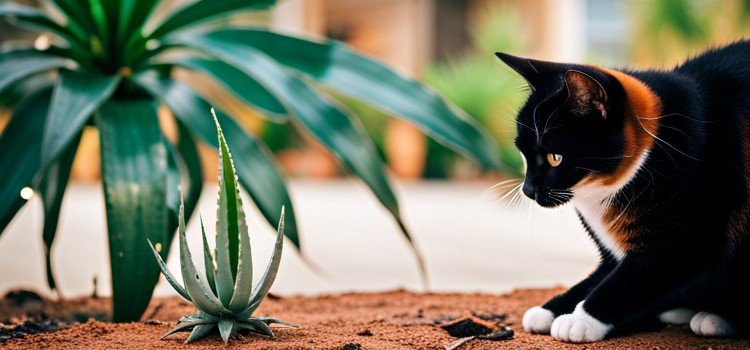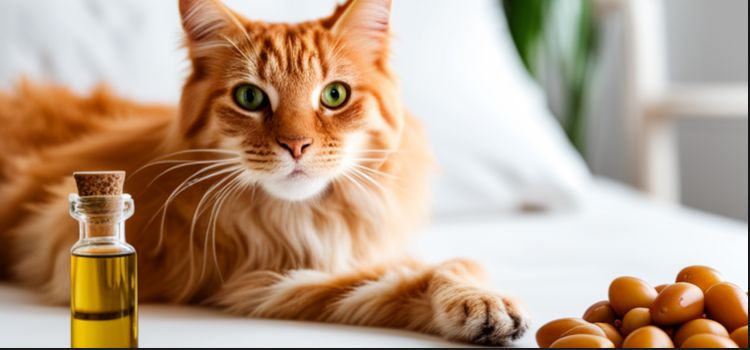As an Amazon Associate committed to the mission of improving the lives of our readers, Live-Clear.com receives a small commission from eligible purchases made through our affiliate links. This revenue enables us to keep producing insightful articles and other material.
No, cats should not consume almond butter due to its high fat and potential allergenic properties. Almond butter may be a popular and nutritious snack for humans, but it is not safe for our feline friends.
Cats have specific dietary requirements that differ from humans, and almond butter does not meet these requirements. While almonds are not toxic to cats, the high-fat content in almond butter can lead to digestive upset, such as vomiting or diarrhea.
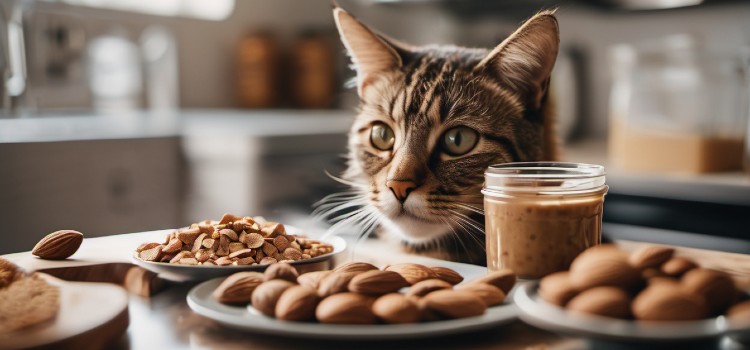
Additionally, some cats may have allergies or sensitivities to nuts, including almonds, which could lead to more severe reactions. Therefore, it is best to avoid giving cats almond butter and stick to a balanced and appropriate diet for their specific needs.
Understanding Almond Butter
Almond butter is a popular spread that many people enjoy, but is it safe for our feline friends to also indulge in it? Understanding almond butter is essential before feeding it to our cats. In this article, we will delve into the world of almond butter, exploring what it is, its nutritional content, and the potential health benefits it offers. If you’re curious whether cats can have almond butter or if it poses any risks, continue reading to discover more!
What Is Almond Butter?
Almond butter is a creamy spread made from roasted almonds. Like peanut butter, it is created by grinding the almonds into a smooth consistency. This process releases natural oils in almonds, creating a rich, flavorful spread for various recipes or standalone enjoyment. Compared to peanut butter, almond butter tends to be slightly more expensive due to the higher cost of almonds. Nevertheless, many people find almond butter’s distinct taste and texture to be worth the investment.
Nutritional Content Of Almond Butter
Almond butter offers a range of beneficial nutrients that can support overall health. Here is a breakdown of its nutritional content:
| Nutrient | Amount per serving (2 tablespoons) |
|---|---|
| Calories | 190 |
| Total Fat | 18g |
| Protein | 7g |
| Carbohydrates | 6g |
| Fiber | 4g |
| Vitamin E | 35% of the Daily Value (DV) |
| Calcium | 8% of the DV |
| Iron | 6% of the DV |
As we can see, almond butter is a nutrient-rich spread exceptionally high in healthy fats, protein, and fiber. It also contains significant amounts of vitamin E, calcium, and iron. These nutrients support energy levels, maintain proper bodily functions, and promote a healthy immune system.
Health Benefits Of Almond Butter
When consumed in moderation, almond butter can offer several health benefits:
- Supports heart health: The monounsaturated fats in almond butter can help lower harmful cholesterol levels and reduce the risk of heart disease.
- Provides essential vitamins and minerals: Almond butter contains vitamin E, calcium, and iron, which contribute to the overall well-being of the body.
- Aids in weight management: The combination of protein, fiber, and healthy fats in almond butter can help promote fullness and satisfaction, potentially aiding in weight loss or maintenance goals.
- Offers antioxidant properties: Almonds naturally contain antioxidants, which can help protect the body from oxidative stress and support a healthy immune system.
- Promotes healthy skin and hair: The vitamin E content in almond butter plays a role in maintaining the health and appearance of the skin and hair.
However, it’s important to note that while almond butter can be a beneficial addition to a human’s diet, it may not have the same level of benefits for cats. Before offering almond butter to your feline companion, it is always best to consult a veterinarian to ensure it is safe and appropriate, as cats have different nutritional needs than humans.
Feeding Almond Butter To Cats
When giving treats to our feline friends, knowing what is safe for their consumption is essential. Almond butter, a delicious spread loved by many humans, is a tempting treat to offer to our curious and eager cats. However, it is crucial to consider their unique dietary needs and whether almond butter suits them. In this article, we’ll explore the topic of feeding almond butter to cats and the potential risks associated with it.
Is Almond Butter Safe For Cats?
While almond butter is safe for human consumption, it may not be as beneficial for cats. Cats have specific dietary requirements, and their digestive systems are designed to process a specific range of foods. When it comes to almond butter, several factors must be considered before offering it to your furry friend.
- Firstly, cats are obligate carnivores, meaning they thrive on a diet primarily of animal protein. Their bodies are not adapted to digest plant-based foods easily.
- Secondly, almonds can be difficult for cats to digest due to their high-fat content.
- Lastly, almond butter often contains additives like salt, sugar, and other ingredients that may not suit cats. These additives can cause digestive issues and harm your cat’s health.
Potential Risks Of Feeding Almond Butter To Cats
Feeding almond butter to your cat can pose several risks to their health and well-being. Let’s take a closer look at some of the potential hazards:
- Possible digestive upset: Cats have sensitive digestive systems, and introducing new foods can cause digestive upset, including diarrhea, vomiting, and discomfort. The high-fat content of almonds and almond butter can aggravate this further.
- Allergies: Just like humans, cats can develop allergies to certain foods. Almond butter contains almonds, which are known allergens for some cats. If they consume almond butter, it’s essential to monitor your cat for any signs of an allergic reaction, such as itching, swelling, or difficulty breathing.
- Choking hazards: Almonds, including almond butter, can present a choking hazard for cats, especially if they are given large pieces or chunks. Cats may not chew food thoroughly, increasing the risk of choking or intestinal blockages.
So, to ensure the well-being of your feline companion, it is generally advisable to avoid feeding almond butter to your cat. Instead, focus on providing them with a balanced diet specifically formulated for their nutritional needs. If you need more clarification on suitable cat treats, consult your veterinarian for guidance.
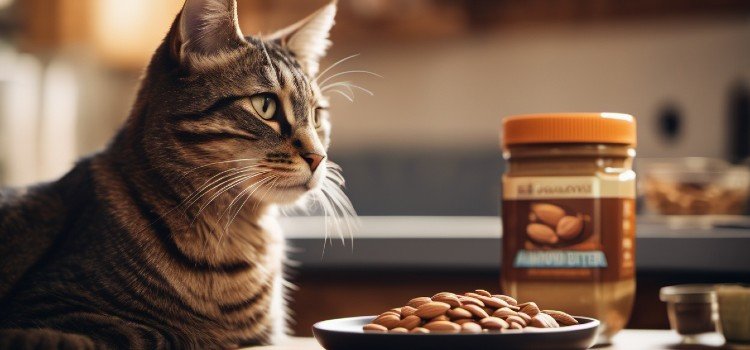
Almond Butter And Cat Health
Many pet owners wonder if almond butter is safe for their feline friends. In this article, we will explore whether or not cats can have almond butter and discuss its potential benefits for their health. Let’s dive right in!
Is Almond Butter Nutritious For Cats?
Almond butter is a delicious and nutritious spread made from almonds packed with essential nutrients. However, almond butter should be given in moderation when it comes to cats. Cats have different dietary needs from humans and should primarily consume food specifically formulated for their nutritional requirements. While almond butter can provide some health benefits to humans, it may not offer the same benefits to our feline companions.
Potential Benefits Of Almond Butter For Cats
Although cats have different dietary requirements than humans, almond butter does offer some potential benefits for their health when given in a controlled manner. Here are a few potential benefits:
- Source of Protein: Almond butter is a good source of protein, which is essential for the growth and maintenance of muscle tissue in cats.
- Healthy Fats: Almonds are rich in healthy fats, such as monounsaturated and polyunsaturated fats. These fats can help support a cat’s skin and coat health.
- Vitamin E: Almonds contain vitamin E, an antioxidant that can help support the immune system of cats.
- Minerals: Almonds are a source of magnesium, potassium, and calcium.
It’s important to note that cats should not consume almond butter excessively. The high-fat content of almond butter can lead to weight gain and other health issues if consumed in large quantities. Additionally, some cats may have allergies or sensitivities to nuts, so it’s crucial to introduce almond butter slowly and monitor their response.
In conclusion, while almond butter can provide some nutritional benefits for cats in moderation, it should not replace their regular cat food. If you are considering adding almond butter to your cat’s diet, it’s best to consult with your veterinarian to ensure it is safe and appropriate for your furry friend.
Alternatives To Almond Butter
Cat owners often wonder if their furry friends can have almond butter. While cats may enjoy the taste, it’s important to note that almond butter is unsuitable for cats due to potential allergies and digestive issues. Thankfully, safe alternatives like cat-friendly nut jars of butter are made specifically for our feline companions.
Always consult a veterinarian before introducing new foods to your cat’s diet.
Safe And Healthy Alternatives To Almond Butter
If you are wondering whether cats can have almond butter, it’s important to consider alternatives that are safe and healthy for your feline friend. Avoid giving almond butter to cats due to potential allergies and digestive issues, despite it not posing immediate danger. Luckily, other options can provide a similar creamy and nutritious experience without the risks.
Exploring Other Nut Butter For Cats
When it comes to nut butter, it’s crucial to choose options that are specifically formulated for cats. While certain nut butters like peanut butter are generally safe for cats in small amounts, some cats may have allergies to peanuts. Therefore, it’s best to opt for nut butters that are less common allergens for cats, such as:
- Safe Nut Butters for Cats:
| Types of Nut Butter | Benefits |
|---|---|
| Cashew Butter | Contains healthy fats and minerals for your cat’s well-being. |
| Hazelnut Butter | Rich in antioxidants and vitamin E, promoting a healthy immune system. |
| Sunflower Seed Butter | High in protein and vitamin E, providing essential nutrients for your cat. |
These alternatives can be served as occasional treats or added to your cat’s meals in moderation. Remembering moderation is vital, as too much fat can lead to weight gain and digestive issues in cats. In conclusion, while almond butter is not recommended for cats, several safe and healthy alternatives are available. Opting for nut jars of less allergenic butter, like cashew butter, hazelnut butter, or sunflower seed butter, can provide your cat with a tasty and nutritious treat.
Remember to introduce these alternatives gradually and always consult with your veterinarian to ensure they are appropriate for your cat’s dietary needs.
Introducing Almond Butter To Cats
Can your furry friend enjoy the deliciousness of almond butter? You’ll be pleased to know that cats can indeed have almond butter as a tasty treat! However, it’s important to gradually introduce it to their diet and provide it in moderation. In this article, we’ll guide you on introducing almond butter to cats and share some valuable tips for incorporating it into their diet.
How To Introduce Almond Butter
When introducing anything new to your cat’s diet, it’s crucial to do so slowly to avoid digestive issues. Follow these steps to introduce almond butter to your feline friend safely:
- Start by offering a small amount of almond butter on your finger.
- Allow your cat to sniff and lick the almond butter from your finger.
- Observe your cat for any signs of allergic reactions or digestive upset.
- If everything goes well, you can gradually increase the almond butter offered.
Remember to monitor your cat’s reaction to almond butter closely. While most cats tolerate it, some may have food sensitivities or allergies. If you notice any adverse reactions such as vomiting, diarrhea, or excessive itching, discontinue feeding almond butter and consult your veterinarian.
Tips For Incorporating Almond Butter Into A Cat’s Diet
Now that you know how to introduce almond butter to your cat, here are some tips to help you incorporate it into their diet smoothly:
- Mix some almond butter with your cat’s regular wet food or treats.
- Use almond butter as a special reward during training sessions or as a bonding treat.
- Spread a thin layer of almond butter on puzzle toys or lick mats to mentally stimulate your cat.
- Avoid using almond butter as a meal replacement or offering it in excess, as it should be considered an occasional treat.
Remember that moderation is essential when it comes to feeding almond butter to cats. While almond butter can be a healthy addition to their diet, it should never replace their regular balanced meals. Always consult your veterinarian before making significant changes to your cat’s diet.
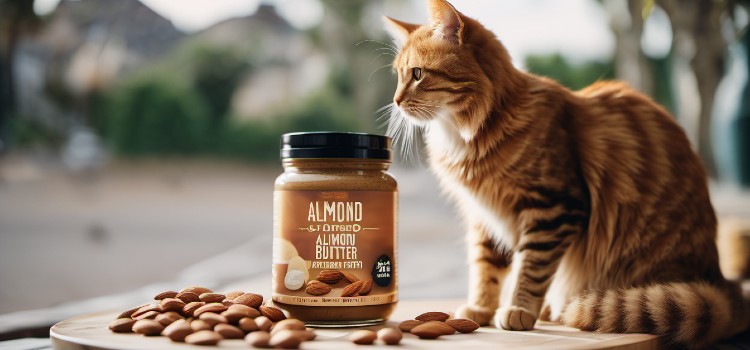
Almond Butter In Moderation
Almond butter can be safe for cats when given in moderation, but it is essential to consider their individual dietary needs and any potential allergic reactions. Consult with your veterinarian before introducing almond butter into your cat’s diet.
Introductory Paragraph
When sharing our favorite foods with our furry friends, it’s essential to exercise caution and follow moderation. One popular question among cat owners is whether their feline companions can enjoy almond butter. While almond butter can be a tasty treat for cats, it should be in moderation to ensure their safety and well-being. In this post, we will explore the importance of moderation in feeding almond butter to cats and provide recommended quantities to ensure their health.
Importance Of Moderation In Feeding Almond Butter
Feeding your cat almond butter in moderation is crucial to avoid potential health issues. Cats have sensitive digestive systems, and introducing new types of food in large quantities can lead to gastrointestinal upset, such as diarrhea and vomiting. Furthermore, almond butter is high in fat, contributing to weight gain and obesity in cats if not consumed in moderation.
It’s important to note that some cats may also have allergies or sensitivities to nuts, so introducing almond butter in small amounts can help monitor any adverse reactions. By feeding almond butter in moderation, you can minimize the risks and ensure that your furry friend enjoys this treat without any negative consequences.
Recommended Quantities Of Almond Butter
Ensure your cat’s safety by offering almond butter in small amounts, like a pea-sized treat, no more than twice weekly. This moderation prevents digestive issues and excessive fat intake.
Prioritize your cat’s nutritional needs, making almond butter an occasional, not regular, treat. Moderation is crucial to maintaining your cat’s health while enjoying this nutty delight.
Signs Of Allergic Reaction
Cats can have almond butter, but watching for signs of allergic reactions such as itching, vomiting, or diarrhea is essential. Monitor your cat closely and consult with a veterinarian if any symptoms occur.
Symptoms Of Allergic Reaction In Cats
The signs of an allergic reaction in cats can be alarming and should never be ignored. If you suspect that your feline friend has consumed almond butter and might be experiencing an allergic reaction, it is important to be aware of the following symptoms:
- Itchy skin.
- Hives or rash on the body.
- Swelling of the face, lips, or throat.
- Sneezing or coughing.
- Difficulty breathing.
- Vomiting or diarrhea.
- Excessive licking or scratching.
- Red or watery eyes.
It is crucial to observe your cat for any of these symptoms after it has consumed almond butter. Keep in mind that these signs might not appear immediately, and it could take several hours or even a day for a reaction to manifest.
What To Do If A Cat Has An Allergic Reaction
If your cat is displaying symptoms of an allergic reaction to almond butter, it is essential to take immediate action to ensure its safety and well-being. Follow these steps:
- Remove access to almond butter: If you suspect your cat has consumed almond butter and has an allergic reaction, remove any remaining almond butter from its reach to prevent further consumption.
- Monitor your cat: Keep a close eye on your cat’s condition, paying attention to any worsening symptoms or new signs of distress.
- Contact your veterinarian: Contact your veterinarian or an animal emergency hotline for professional advice. They will be able to guide you through the necessary steps you need to take to address the allergic reaction.
- Follow their instructions: Follow your veterinarian or the animal emergency hotline carefully, as they will provide the best guidance based on your cat’s specific situation.
- Stay calm and reassure your cat: During this challenging time, staying calm and reassuring your furry companion is essential. Your presence and soothing words can help alleviate some of their stress.
- Follow-up with your veterinarian: After the initial allergic reaction has been addressed, schedule a follow-up appointment to discuss any lingering concerns or potential future allergies.
Remember, swift action is crucial when dealing with an allergic reaction in your cat. By being vigilant and seeking professional advice, you can help ensure your pet receives the necessary care and attention to recover from the allergic reaction.
Consulting A Veterinarian
Consulting a Veterinarian is always recommended when making important decisions about your feline friend’s diet. However, almond butter might seem harmless, so seeking professional advice before introducing it into their diet is crucial.
When To Seek Veterinary Advice Regarding Almond Butter
If you are uncertain whether it is safe for your cat to consume almond butter, it is best to consult your veterinarian. They can provide expert guidance based on your cat’s needs and health. It is vital to understand that every cat is different, and what may be safe for one might not be suitable for another.
Getting Professional Opinion On Feeding Almond Butter
Consult your vet for advice on adding almond butter to your cat’s diet, considering factors like health, age, and weight. Learn about potential risks and benefits during the consultation, along with alternative, safer treats. Almond butter’s high fat content may cause weight gain or digestive issues, so assess its suitability with your vet. Determine proper portion sizes and frequency, considering allergies. Rely on your vet’s expertise for the best diet decisions, including introducing almond butter or new foods.
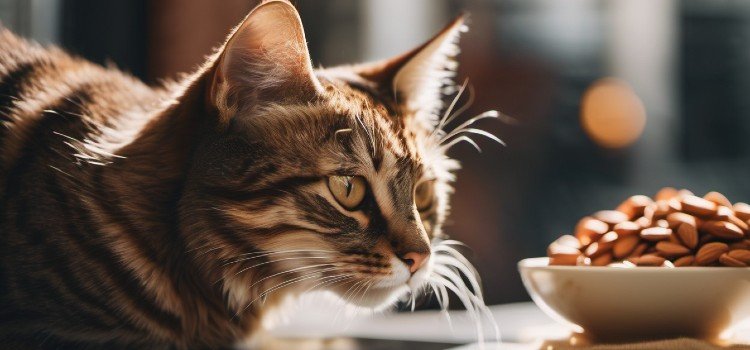
Conclusion
While almond butter may be a delicious treat for humans, it is not recommended for cats. Cats have specific dietary needs and almond butter may cause digestive issues and even be toxic to them. It’s always best to consult with your veterinarian before introducing any new food to your cat’s diet.
Frequently Asked Questions (FAQs)
While almond butter is safe for cats in moderation, it is high in fat and calories. Too much can lead to digestive issues or obesity.
Almond butter is not toxic to cats, but it should be given in small amounts as a treat rather than a regular part of their diet.
Yes, some cats may have allergies to almond butter. Watch for signs of vomiting, diarrhea, or itching after consumption.
Recommend giving cats a small amount of almond butter as an occasional treat and monitoring their tolerance.
Almond butter can be a source of protein and healthy fats for cats, but it should not replace their main diet. Moderation is key.
Stick to cat-friendly treats and enjoy the many other ways you can spoil your feline friend!
Amazon and the Amazon logo are trademarks of Amazon.com, Inc, or its affiliates.
